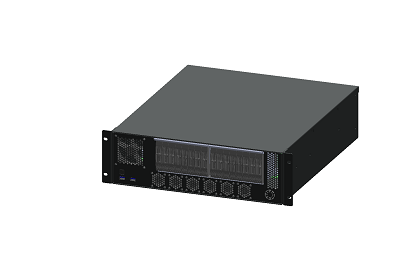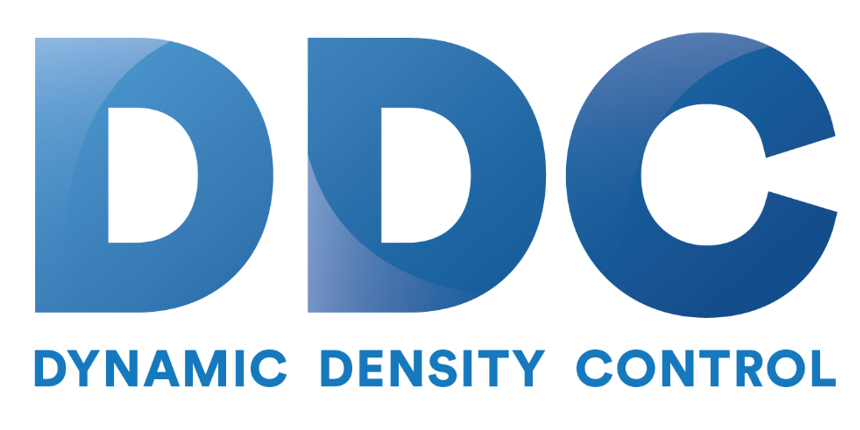By Ron Javor – Product Marketing Manager at One Stop Systems
There are three major deployment scenarios for AI applications at the edge depending on the user’s definition of the “Edge.” For simple AI inference, ultra-low power Internet of Things (IoT) devices suffice. For small-scale, air-conditioned datacenter buildings closer to industry, standard servers handle the task. But, when deploying highly complex AI training, re-training, or large-scale inference applications at the edge, especially in spaces that move, a more rugged, flexible yet high-performance server architecture is required. These AI Transportable™ applications such as autonomous vehicles, situational command and control, aerospace, and high-complexity video-based inference and security often require real-time decision-making with limited 5G or no network connectivity to a centralized datacenter.
Commercial-grade servers and expansion products are not suitable for these applications due to harsh physical environments and the transportable nature of the deployments. To address these use-cases, One Stop Systems has developed the industry leading PCIe Gen4 HPC server appliance designed for performance without compromise in a compact, rugged, and transportable form-factor.
3U SDS Appliance
The OSS 3U-SDS specifically targets the AI Transportable edge market with a PCIe 4.0 Rugged Server Appliance in a compact 20” short-depth ruggedized system that makes no compromises in performance. Leveraging industry-leading PCIe Gen4 components, such as dual AMD EPYC™ CPUs, up to four NVIDIA® A100 Tensor Core GPUs, sixteen NVMe drives and high-speed data ingest through 200Gb/s NVIDIA ConnectX-6 SmartNICs or FPGAs, the 3U-SDS delivers best-in-class processing capability and flexibility. For example, when max configured for AI inference on INT4 sparse neural networks, the SDS can provide up to 9.9 PetaOPS compute power, and even more when paired with OSS PCIe Gen4 expansion systems, like the 4UPro and additional compute accelerators.
 With up to seven x16 PCIe Gen4 slots available on the server, the OSS 3U-SDS can offer the flexibility of packing more functionality in a single server in tight spaces or scale-up applications using multiple powerful servers in mobile racks using high-speed networks. Conversely, the seven available slots can support scale-out to one or more OSS expansion systems for a large-scale data ingest, processing, storage, and AI inference powerhouse.
With up to seven x16 PCIe Gen4 slots available on the server, the OSS 3U-SDS can offer the flexibility of packing more functionality in a single server in tight spaces or scale-up applications using multiple powerful servers in mobile racks using high-speed networks. Conversely, the seven available slots can support scale-out to one or more OSS expansion systems for a large-scale data ingest, processing, storage, and AI inference powerhouse.
In addition to the shallow 20” depth, the 3U-SDS is highly ruggedized to meet the demanding MIL-SPEC-810G, providing high-reliability through rough transport scenarios and environments that are stressed by shock and vibration, humidity, altitude, and large operating temperature ranges. The system boasts the staple OSS Removable Drive Pack feature which uses two canisters, each containing 8 solid-state drives supporting up to a half PetaByte total of NVME PCIe Gen4 storage. The Removable Drive Packs are particularly beneficial for daily security removal or quick download of large mission datasets to fixed datacenters. The highly ruggedized Removable Drive Packs can be exchanged daily for up to 3 years.
To further enhance data security, OSS is strategically partnered with KIOXIA, a leader in SSD technology, and provider of FIPS 140-2 compliant SSDs. Don’t miss an upcoming joint webinar with Jim Ison from OSS and Matt Hallberg of KIOXIA. Both companies will discuss a multi-tiered approach to data security, meeting even the most stringent FIPS 140-2 level encryption requirements, at the drive, system, or private network level to keep AI dataset IP secure.
OSS has developed its AI on the Fly® AI Transportables™ portfolio of building block products to enable HPC at the edge. The 3U-SDS is the latest addition to the portfolio, providing PCIe Gen4 HPC in a rugged, compact form-factor with flexibility in scale-up or scale-out. For more information about OSS’ AI on the Fly PCIe Gen4 product portfolio, visit: www.onestopsystems.com.
About the Author
Ron Javor is Product Marketing Manager at One Stop Systems. Ron has over 25 years of experience in product management, product marketing and design engineering at Motorola, Intel, Broadcom and SanDisk. Ron holds a Master of Science in Electrical Engineering from Texas A&M University, a Master of Business Administration from Arizona State University, and a Data Science Certificate from the University of California, San Diego.




